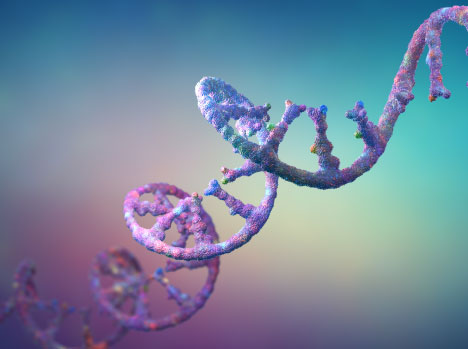In a groundbreaking development, researchers from Memorial Sloan Kettering Cancer Center (MSK) have presented new data that shines a hopeful light on the fight against pancreatic cancer. The innovative approach, employing the experimental messenger RNA (mRNA)-based therapeutic cancer vaccine candidate, autogene cevumeran, continues to demonstrate significant potential in stimulating an immune response that could lower the risk of the disease’s recurrence post-surgery.

Developed through a collaboration between BioNTech and Genentech (part of the Roche Group), autogene cevumeran (BNT122, RO7198457) is at the forefront of mRNA cancer vaccine technology. Each vaccine is custom-made, tailored to the mutational profile of an individual’s tumor, marking a significant advancement in personalized medicine.
This novel vaccine aims to educate T cells—vital components of the immune system— to recognize and attack neoantigens, unique proteins found in the pancreatic tumors of each patient. The overarching goal is to empower the body’s natural defenses to identify and eliminate cancer cells.
Pancreatic cancer stands as the third leading cause of cancer death in the United States, with a survival rate that remains distressingly low; only about 12% of patients survive five years following diagnosis. “Current treatments for pancreatic cancer are severely limited,” stated Dr. Balachandran, emphasizing the urgency for innovative solutions like autogene cevumeran.
Encouragingly, earlier phases of the trial have already demonstrated the vaccine’s safety and efficacy in activating immune responses in a significant number of treated patients. With a median follow-up of three years, a robust T cell response to the vaccine continues to be evident. Impressively, the majority of these vaccine-induced T cells were new to the patients’ immune systems and showed remarkable persistence, correlating with delayed disease recurrence.
While the exact relationship between the vaccine and the delay in cancer recurrence is still under investigation, these findings provide a hopeful outlook for those battling pancreatic cancer. An ongoing randomized Phase II trial aims to further assess the efficacy and safety of autogene cevumeran, potentially setting a new standard in the post-surgical treatment of pancreatic cancer.
This study not only underscores the potential of mRNA technology in cancer treatment but also represents a beacon of hope for patients and their families, promising a future where cancer can be confronted more effectively and with greater hope of long-term survival.

Check out our mRNA service to expedite your vaccine research
PackGene Biotech is a world-leading CRO and CDMO, excelling in AAV vectors, mRNA, plasmid DNA, and lentiviral vector solutions. Our comprehensive offerings span from vector design and construction to AAV, lentivirus, and mRNA services. With a sharp focus on early-stage drug discovery, preclinical development, and cell and gene therapy trials, we deliver cost-effective, dependable, and scalable production solutions. Leveraging our groundbreaking π-alpha 293 AAV high-yield platform, we amplify AAV production by up to 10-fold, yielding up to 1e+17vg per batch to meet diverse commercial and clinical project needs. Moreover, our tailored mRNA and LNP products and services cater to every stage of drug and vaccine development, from research to GMP production, providing a seamless, end-to-end solution.
Related News
[2024/12/20] Gene and Cell Therapy- weekly digest from PackGene
FeaturedNewsArticlesPackGene's NewsletterReceive the latest news and insights to your inbox.About PackGenePackGene Biotech is a world-leading CRO and CDMO, excelling in AAV vectors, mRNA, plasmid DNA, and lentiviral vector solutions. Our comprehensive offerings span...
Sangamo and Astellas Collaborate to Advance Neurological Gene Therapies Using AAV Capsid Technology
Sangamo Therapeutics, Inc. (Nasdaq: SGMO), a leader in genomic medicine, and Astellas Pharma Inc. (TSE: 4503), a global innovator in life sciences, have partnered under a new license agreement. This collaboration centers around Sangamo’s cutting-edge neurotropic AAV...
Inceptor Bio and GRIT Bio Announce Strategic Partnership to Advance IB-T101, a Next-Generation Solid Tumor CAR-T Utilizing the OUTLAST™ Platform
SHANGHAI and MORRISVILLE, N.C., Dec. 18, 2024 /PRNewswire/ -- Inceptor Bio, a leading innovator in cell therapy, and GRIT Bio, a clinical-stage immunotherapy developer, today announced a strategic partnership to advance IB-T101, a potentially best-in-class CAR-T...
Proof-of-concept study bioengineers therapeutics for improved cancer treatment
Credit: Pixabay/CC0 Public DomainA team of Children's Medical Research Institute (CMRI) scientists has identified a new method for producing a therapeutic product that has the potential to improve the treatment of cancer. The work by Associate Professor Leszek...
Related Services

Plasmids GMP Services

AAV GMP Services


